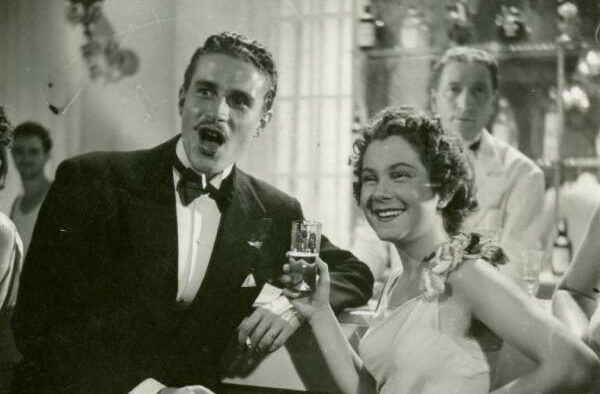Dopo Divorzieremo (1940), directed by Nunzio Malasomma, is a quintessential example of Italian cinema from the late 1930s and early 1940s. Encapsulating the complex dynamics of love, marriage, and societal pressure in pre-war Italy. The film portrays the emotional and moral struggles of Antonio (Amedeo Nazzari) and Elena (Vivi Gioi), a couple at a crossroads in their marriage. The couple has reached a point where divorce seems imminent. Yet, the film delicately unveils the intricate layers of their emotions, revealing the profound impacts of societal judgment on their lives.
At its heart, Dopo Divorzieremo is not just about a divorce, but about how the personal choices of two individuals are shaped. Decisions moulded by their time, their environment, and, most poignantly, by the expectations of a rigid social structure. Italy in the 40s made the very idea of divorce scandalous, which amplifies the internal and external conflicts that both Antonio and Elena must grapple with. As the title suggests, the film explores the tension between the desire for personal freedom and the constraints imposed by society on personal relationships.
Settings and Locations: A Reflection of Social Tension
Settings in Dopo Divorzieremo play a significant role in enhancing the narrative, both in terms of visual storytelling and in reflecting the characters’ internal struggles. The film was primarily shot in Rome, with the domestic spaces of Antonio and Elena’s apartment taking center stage. The small, intimate interiors contrast with the bustling, indifferent public spaces of the city. Thus creating a vivid reflection of the tension between personal desires and societal expectations. These locations are not just backdrops; they serve as extensions of the characters’ emotional landscapes. The couple’s home—an otherwise warm and inviting space—becomes a battlefield where the personal and societal collide.
The choice of Rome as the primary setting is crucial to the film’s commentary. During the 1940s, Rome was not only the capital of Italy but also a symbol of its complex socio-political landscape. The city streets and public spaces, where characters occasionally cross paths with society at large, mirror the pressure Antonio and Elena face as they struggle with their decision to part ways. The city’s grandeur and its traditional Roman architecture serve as visual metaphors for the constricting values that permeate Italian society at the time.
Performances: Subtle Emotional Turmoil
The success of Dopo Divorzieremo lies heavily in the compelling performances by Amedeo Nazzari and Vivi Gioi. Nazzari, renowned for his intense portrayals of conflicted men, excels as Antonio, a character torn between his deep love for Elena and the need for personal liberation. His performance is marked by subtle restraint, embodying a man who cannot fully escape the emotional bonds of his marriage, despite his desire for freedom. Nazzari’s ability to convey complex emotions with a mere glance or a well-timed silence adds depth to his character and to the film’s exploration of love and separation.
On the other hand, Vivi Gioi plays Elena with grace and emotional depth. As a woman facing the reality of divorce—a rare and often stigmatized act at the time—Gioi’s Elena is both vulnerable and resolute. Her performance captures the emotional toll of the situation, balancing her own desires with the societal repercussions of her actions. The chemistry between Gioi and Nazzari forms the emotional backbone of the film, creating an intimate and convincing portrayal of a couple struggling to reconcile their feelings.
A Timeless Reflection on Love and Society
Dopo Divorzieremo is more than just a story about divorce; it is a study of the emotional and societal complexities that bind us. Through its richly crafted performances and evocative settings, the film invites the audience to reflect on the personal costs of social expectations and the difficulty of breaking free from tradition. The performances of Nazzari and Gioi, coupled with the film’s poignant depiction of Rome’s vibrant yet restrictive atmosphere, make it a standout in the Italian cinematic tradition.
As a product of its time, Dopo Divorzieremo resonates not only with those interested in the history of Italian cinema but also with anyone who has ever questioned the influence of societal norms on personal relationships. Its lasting power lies in its ability to touch on universal themes of love, loss, and the search for individual identity, making it a timeless piece in the landscape of Italian film.
Watch the movie on Movieitaly+
Read more articles over here!






